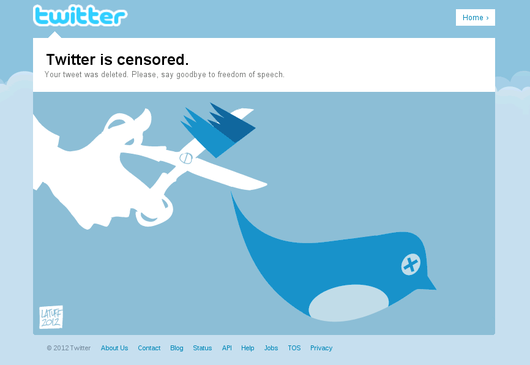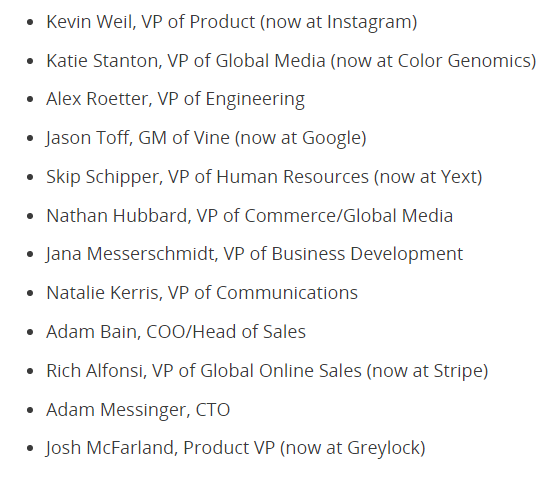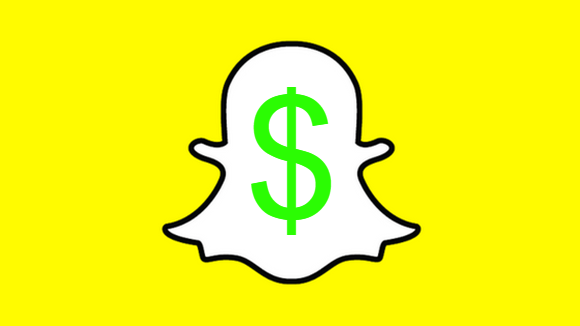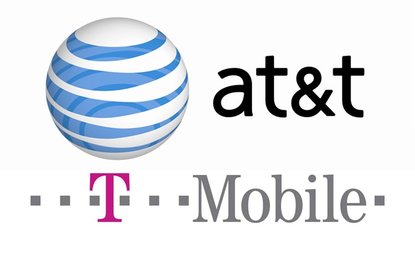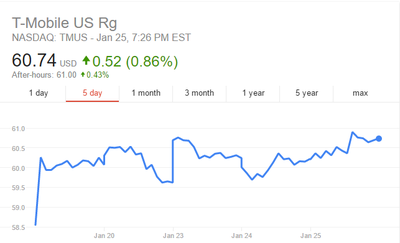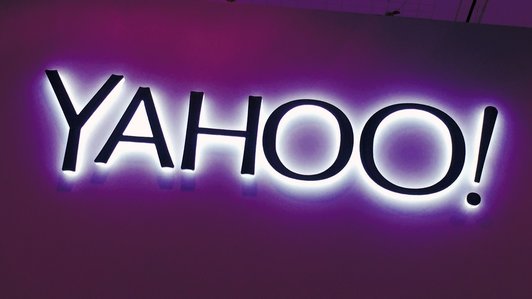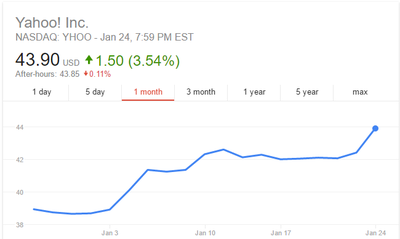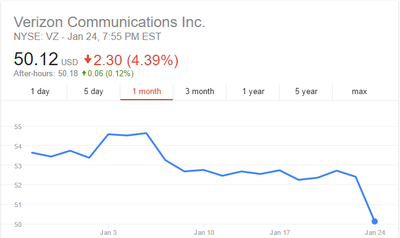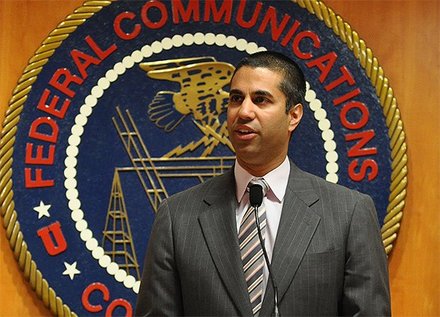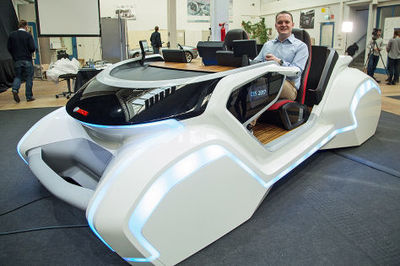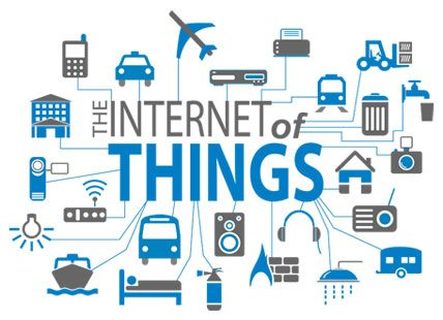|
Twitter, founded in 2006 by Jack Dorsey to be a simple social media platform that was no different than text messaging. In the past decade Twitter has evolved in two ways; one way, the platform took off and is much more complex with a few make overs here and there. The other way is, political correctness and censorship, which can be the same thing at times.
Twitter once had a bright prosperous future ahead of them, users growing and flurrying with innovation, and then in November 2013 Twitter went public. If you pay attention to the markets, and to Twitter's stock, you'd see it's been a big bust. Since 2013, the stock barely gained and commonly, more recently, loses. Why is that? It appears Twitter peaked quicker than anyone would have thought, there was only so much that could be done with Twitter that too much was getting done to upgrade it, when there wasn't a demand for that. Twitter also jumped into the realm of political correctness and social justice, which hasn't been helping their brand at all, now it gets cheers from the left and real victims of cyber bullying, but that does not represent the platform of Twitter. The censorship game all started when Twitter started suspending conservative accounts in July 2016, with the biggest one being @Nero owned by Milo Yiannopoulos for insulting SNL's Leslie Jones for her Ghostbusters role. Whatever happened to using Twitter's own blocking and muting functions? If someone is insulting you or bullying you via Twitter, block or mute them, they go away. It's clear Leslie's ego was bigger, which is way her and Jack Dorsey talked personally and had Milo banned from Twitter for life. Read the full story from Breitbart, click the red B.
More recently, the infamous "Pharma Bro" Martin Shkreli was suspended earlier this month for "harassment". Read more about that from CBS News . Again, why can't anyone use the block or mute functions, specifically designed to give the user power on who can talk to them. Twitter was created so everyone can come on and share what they are doing, thinking, whatever they want to post, but the recent political climate has changed all that big time.
Today, according to the Daily Caller, Twitter announced they are developing tools to prevent users from saying "hateful" things on Twitter. Is that ridiculous or what? Twitter is purely restricting speech, and spitting on the 1st Amendment, sadly Twitter doesn't have to follow the 1st Amendment because businesses can create their own policies. It's just very sad, Twitter is doing this, and one couldn't even guess how it'll benefit their bottom line and their stock value. Rumors have been floating around that Twitter may be bought, and with they way the company is going that may be truth in the near future. According to Fortune companies like Google, Disney, and Salesforce could be the ones to purchase the platform. Just two weeks ago Twitter sold their developing platform Fabric to Google, per Business Insider. That transaction could be the signal to something, but with Google buying it, don't expect censorship and political correctness to go away. It seems as if Jack Dorsey really doesn't care for his company, but for the cause he's fighting for using his social media platform as a tool. In 2016 a number of top executives fled the company and that signals a problem within a company. Per Recode, here is a list of those who left Twitter in 2016:
Notice the amount of Vice Presidents who left. That triggers the alarms for investors and even consumers, but more so investors because they have money invested within the company. Again, Jack Dorsey seems not to care about Twitter's shareholders or stakeholders for that matter, but only cares about his social justice cause. It's reflected from many conservative accounts being purged, political incorrect accounts being purged, and the company developing ways to censor tweets.
If you check Twitter's settings, go to "Privacy and content", you'll see "Show me sensitive media" which is a setting where you can either see or not see photos or video that may be sensitive according to Twitter. If you go to the "Notifications" settings, you'll find "Quality Filter" and "Muted words". The "Quality Filter" is supposed to improve the quality of Tweets you see. The "Muted words" setting is literally designed for a user to type in any word(s), and any tweet that contain that word, or words, will not appear on your timeline. Apparently Twitter isn't stopping there, as stated above from the Daily Caller article, Twitter is taking steps to prevent tweets from being posted all together. That is some serious 1984 Orwellian stuff right there. One a quick note, Facebook is working with China on censorship, and have been caught censoring conservative news on their platform. It's just sad, a social media network that had such potential and looked very promising is now failing. They're failing due to internal incompetence and censorship, Jack Dorsey let political correctness sway the way Twitter does business. TWTR will lose more than it gains, and soon Twitter will be bought by a company, and only God knows where Twitter will go from there. If the buyers are smart, they'll bring Twitter back to its roots, and promote freedom of speech for all and forever. Here is Milo Yiannopoulos giving Twitter a funeral (Start video at 30 minutes in):
1 Comment
Snapchat, the once small photo sharing app now one of the most used social media platforms on the planet. Released in 2011 it was a simple concept, a photo sharing app that deletes the pictures after a limited amount of time. Snapchat now is much more than that, and they're parent company Snap announced, per Business Insider, that they'll be going public. Snap will be listed on NYSE and may value at $25 billion.
Starting as a class project created by Evan Spiegel (Snap Inc. CEO), Bobby Murphy, and Reggie Brown they turned it into a now multi-billion dollar company. Snapchat started as a picture sharing app where the photos vanished after a certain time limit, it evolved into video and chat, accompanied by filters and geotags, and has now blossomed into a full out social network. According to Statista, as of June 2016, Snapchat had 150 million active daily users around the globe. One can assume that number has only grown since June of 2016, lets just guess 200 million users as of January 2017. Snapchat's users grow as the company grows, and the company has plenty of growling left to do. Last year, Snap released Spectacles, which are camera glasses for Snapchat. These glasses have two camera's and are connected to your Snapchat account, what you see is what you post. Spectacles give you a glimpse as to where Snap wants to go next, being a camera company. Where can you get Spectacles? Snap will likely sell them all across the country, but for now they can only be found in California, Oklahoma, and New York. Spectacles have to be bought from a vending machine called a "Bot", and run for about $130. Here's a quick video from Mashable on Spectacles:
The rate at which Snap is expanding, both as a company and in users, going public is a no-brainer. It also should make investors licking at their chops, because like stated above, at the rate this company is expanding, Snap has yet to peak. The better days lie ahead for Snap, and one could make the case they'll survive post IPO easier than they could argue against it.
Snapchat added "Discover" to their Snap Story section the Snapchat, where companies and Snapchat could post their own "stories" so people could "discover" them. This was brilliant both on Snapchat and the participating companies parts, because this opened the door to Snapchat for more users, money from the companies, and eventually advertising. Yes advertising, which really is the main reason why companies have a "discover" story on Snapchat. Not too long ago, Snapchat started running ads on not just "Discover" stories, but in between the Snapchat stories of your contacts; yes the golden ticket to revenue in the digital world, advertising. Snapchat users, keep snapping and enjoying what Snap puts out. Snapchat just recently had an update which changed the user interface up a bit, and gives it a somewhat different theme, but still with the same Snaphchat feel to it. Snap even added a search function to Snapchat now and not just for contact searches, the search bar is literally on your camera screen. Investors should be very excited and optimistic for this IPO. Snapchat has evolved significantly over the past 5 years and it's showing no sign of slowing up. Snapchat will only grow larger and could evolve into a much more complex social media platform than it is now. Spectacles will only grow in supply, be made more available, advertised, and increase in demand by the public. Snap will evolve into something much bigger than it is today, and back in February of 2015, Steve Tobak of Fox Business called it. Read that article.
T-Mobile is fully taking the gloves off against competitor AT&T, today T-Mobile took yet another jab at their rival. T-Mobile has been offering a free 1 year membership for DirecTV Now for any AT&T customer that switched to T-Mobile. Hulu is now being offered free for 1 year for AT&T switchers. All according to CNET.
This was mainly in direct response to AT&T selling DirecTV for $35 a month while not counting any data towards their customers while they're streaming DirecTV Now. T-Mobile's CEO also stated DirecTV Now is "barely watchable". T-Mobile is 3rd out of the 4 big wireless carriers, (Sprint 4th, AT&T 2nd, Verizon 1st), and they've been stepping up the fight against them all. T-Mobile seemed to always focus small, competing mainly with Sprint because they are close in numbers. Recently, T-Mobile has been picking a fight with AT&T, a company that is rapidly evolving and expanding. AT&T currently has a $85.4 billion deal on the table with Time Warner. T-Mobile recently announced their "Un-Carrier Next", which is a 3 point plan. The first is introducing plans where the price advertised is the price you pay, it bundles all fees and taxes together. The second is "KickBack" which refunds you credit for the data you don't use at the end of your billing period, and if you use 2GB or less, you'll receive $10 credit. Last is, the Un-contract, which is you only pay the price of the plan you picked until you want to change or terminate. Also, you have to be a postpaid customer to take part in this. This is all according to TmoNews. Here is an official "unboxing" video from T-Mobile on Un-carrier Next:
Also according to TmoNews, T-Mobile's CEO hinted that their is still a possibility of a Sprint and T-Mobile merger, but no clear interest on either side is present at this point in time.
Unfortunately for AT&T in the midst of all this, they're losing customers big time. BGR cited an analyst from Wells Fargo that predicts AT&T lost 220,000 customers in Q4 2016. AT&T already lost 268,000 during Q3 2016, according to that same article. Fox Business reported that AT&T is to record a $1 billion pre-tax loss for Q4 2016. AT&T is losing customers and money, but AT&T is investing a lot of that money in current projects and their future. AT&T is investing in the GB Internet field, they picked up DirecTV, and they're working on becoming a content supplier. Those loses however benefit companies like T-Mobile and Sprint, while some upgrade to Verizon. AT&T gets hurt in the short-term, but may prosper in the long-term. Can T-Mobile pull the upset? Unfortunately, not by themselves. T-Mobile will likely have to pair up with Sprint, or some other media/telecommunications company to get the money and resources needed to sit at the same table with AT&T and Verizon. Simply, T-Mobile may be gaining customers (1.4 million net postpaid adds per Phone Arena), and cash, but being owned by German firm Deutsche Telekom there are hurdles in the board room. T-Mobile lacks in infrastructure and are simply too financially far behind AT&T and Verizon, that they'll never catch up. Sprint also faces that same reality. T-Mobile will continue to grow and expand, possibly a merger with Sprint will happen in the future, and that could really shake up the industry and markets. Even though T-Mobile can't single handily take out AT&T, they can make their wireless plans much more attractive to customers and compete directly with the big boys on that front. Per Google, here are the 5 day stocks for T-Mobile and AT&T (Click for larger images):
Yahoo! The once great Internet search engine is now facing SEC investigation due to it's massive data breach that compromised over a billion Yahoo! accounts. The SEC is the Security Exchange Commission, which regulates the financial securities industry, stocks, and organizations such as Yahoo!. The SEC requires companies to disclose cybersecurity risks as soon as they're found out, and it appears Yahoo! failed to do this. This is all per, Fox Business.
In 2014 Yahoo! was hacked which compromised millions of accounts, but failed to disclose the hack until 2016 which Yahoo! then also discovered, that in 2013 another hack happened bringing the total number of compromised accounts to about a billion. Yahoo! clearly violated the SEC policy, and could face federal charges. By doing this, Yahoo! did not let their stake and shareholders know about the hacks which is very unethical, and may have harmed user's information and investors money. The SEC has not filed any charges yet, and it isn't clear if they will at all, but it sure shows some shady business going on at Yahoo!. This has some people saying Yahoo! took so long to disclose the breaches due to the pending Verizon-Yahoo! deal, which is terrible to all employees in both companies, as well as the investors. Very unethical. Here is a video from Bloomberg explaining the situation:
According to CNBC, the Verizon-Yahoo! deal is still on for the time being, but with all stuff happening at Yahoo! it's looking very unattractive. Really what it boils down to, does Verizon need Yahoo! that bad?
If Verizon goes through with the deal, the thinking behind it may be, Verizon will put all this in the rearview mirror, and get what they wanted out of Yahoo! in the first place, digital advertising. If you want to make a pretty penny on the Internet, focus on selling ads and ad space. Sure, Verizon wants content and resources Yahoo! has, but it's really all about them ad dollars. It's almost under the same guise of when Verizon scooped up AOL for $4.4 billion. Like stated above, ads are the name of the game when it comes to making money on the Internet. Before the SEC probe, but with both hacks disclosed and the questions already raised, surprisingly Yahoo! finished Q4 okay. According to Fox Business, Yahoo!'s financial performance improved a bit, but also reflects the of the company and it's future. The article pointed to cost cutting that helped Yahoo! out somewhat in the past year. Yahoo!'s CEO Marissa Mayer has planned to step down from Yahoo!'s board if Verizon still buys Yahoo!. Once the deal is closed and approved, Mayer will then rename Yahoo! to Altaba. This whole thing is just a big blow to stake and shareholders of Yahoo!. It shows real unethical practices going on within Yahoo!, and plain incompetence of executives. Yahoo! clearly violated the SEC policy of immediately disclosing a cybersecurity issue by taking two years to disclose it, and then slyly disclosed an additional breach in 2013. Information was compromised, and money could very well have been affected for all parties involved with Yahoo! and even Verizon. On one hand Verizon should not go on with this deal, let Yahoo! die a slow death and get acquired by someone like Google. If it's true that all Verizon really wants is digital advertising, it wouldn't take long to find a replacement deal, maybe Twitter? On the other hand Verizon should accept the deal with Yahoo! and save a dying company. Verizon could renegotiate the price of the deal, save money, and get what they wanted out of the deal. Verizon could sweep the dust under the rug, and start fresh with what would then be Altaba. Yes, Altaba, weird. Per Google, here are the 1 month stocks for both Yahoo! and Verizon (Click for larger images):
President Trump appointed FCC Commissioner Ajit Pai as the new Chairman of the FCC. Ajit Pai, a republican, was appointed by Barack Obama to serve as a commissioner for the FCC. Trump was quick to get to work and he wasted no time appointing new leadership for America's communications regulator after former chairman Tom Wheeler stepped down. This is all per The Hill.
Ajit Pai has made headlines strongly opposing net neutrality, and really being the anti-regulatory voice in FCC. Pai has strongly apposed previous FCC head Tom Wheeler's moves, but there really could be no better appointee than Pai for this position. Given Pai has already served as commissioner, and according to Forbes, Pai served some years in the Office of the General Counsel of the FCC and extensive knowledge of communications law. Pai was a senior attorney at a law firm that served a major telecommunications company. Pai will be in charge of the nation's regulatory body of all telecommunications. If you know what Pai is about, it's easy to guess where he could take the Commission, and one could assume it'll be deregulation. Like stated above, Pai has been a real voice for the regulations pushed by the Obama administration that put major restrictions on the telecommunications industry as a whole. Here is a brief video summary of Pai's view and plans per Wochit News:
You'd think with Republicans controlling The House, The Senate, and The White House, Pai will have no issue doing what he wants to do, well that is true, but there is one thing. The AT&T-Time Warner merger, the $85 billion deal that has President Trump shaking his head on. That is the one thorn in the side Pai will have, is Trump's disapproval of the merger. Trump stated back in October, he thinks it puts too much power "in the hands of too few".
Trump obviously does not seem to be a fan of consolidation, which sadly is the trend in the telecommunications and media industries, but Pai doesn't oppose it. In the next four years look for a lot of meetings between President Trump and Chairman Pai, especially when a merger or acquisition comes up within the industry. It's safe to say Pai will push free market policies and deregulate the telecom and media industries. That overall vision aligns with Trump's pro-growth, pro-American vision. Expect to see more jobs, innovation, and market growth within telecommunications and media over the next four years. Again, Pai and Trump will spar over mergers and acquisitions as both have good and fair arguments; Pai wants a free market approach as Trump wants a competitive approach. Consolidation is good in some instances, if it benefits the consumer and the market place, but too much could create an oligopoly which is not good. Investors should keep a close eye on stocks in the telecom and media industries over the next four years, also keep and eye on those ETFs as well. With Trump promoting pro-growth policies across the board, and Ajit Pai now the Chariman of the FCC, this sector could take off. Consumers and investors alike should all be excited for this new era in America, and once Pai gets to deregulating and promoting growth, industries will pick up steam and really take off. Technology overall, which a lot has to be approved by the FCC, has been over flowing with innovation and growth, but regulations have slowed that growth, and has kept a beast in it's cage long enough. Chairman Pai and President Trump will unleash the full potential of the telecommunications and media industries.
The Consumer Electronics Show is an annual convention where companies show off their new and upcoming electronics. What was just said, is how it was originally intended, now it's more of a technology show because everything is electronic.
Pulsar's last post was regarding the Internet of Things (IoT), and how big it really is and the affect it has. CES 2017, could really be dubbed the CIoTS 2017 (Consumer Internet of Things Show), because offline technology was the clear minority at the show. From hair brushes to vehicles CES had it all, and along with many others, the hair brushes and vehicles can connect to the Internet. Throughout the 2000s, and much more in this decade, we've been connecting more and more things to the Internet like mass production for World War II. Really, companies are connecting all their products to the Internet now, and there is nothing we're going to be able to do about it. CES 2017 is a picture of what our future will inevitably look like. Smart refrigerators, voice controlled home appliances, internet connected AI controlled cars, virtual and augmented reality, and robots all present at the show. Robots are sort of that sci-fi, always wanted as a kid, type of dream. Yes robots exist in other forms, but not succesfully has a human companion and/or helper, the type invisioned in minds. Well CES 2017 delivered, and Mayfield Robotics unveiled Kuri. Kuri can do many things to make your life a little easier, Kuri is connected to the Internet and can control smart appliances, and notify you of certain things. Kuri can remind you things, monitor your household, and play music. Is Kuri the BETA for a world like Will Smith's iRobot, or a personal droid like R2-D2? Here's a video of Kuri per NBC News:
TV, possibly one of the most rapidly evolved piece of technology in the past 20 years. TV went from big tube TVs, to flat screens, to LCD screens, all the way to Organic LED. CES 2017 delivered new links in the TV evolution chain, and lets start with LG's wallpaper TV. LG used their OLED technology to make a super light weight, super slim TV named Signature OLED TV W. It has a flexible screen, yes flexible, and is only 4 millimeters thick according to futurism.com.
Video by LG of their "wallpaper" TV:
Flexible paper-like screens are the future for newspaper, and quite frankly books. That technology made a presence at CES 2017, not in just LG's TV, but the concept itself was unveiled. Imagine buying a disposable screen everyday for a newspaper, or hitting the book stand with just small screens to choose from. It's just a matter of when, not if.
Pictured on the right is Toyota's new Concept i, and pictured on the left is Bosch's concept car. Both vehicles have similar ideas, let AI control the car and you act more as the passenger than the driver. Toyota uses a personal AI assistant named Yui. Yui learns, adapts, and functions by usings voice command, sensors, and the Internet to successfully drive you to your destination. Yui will also learn about the driver from driving patters all the way to emotion. As of now, you'll have to go to Japan sometime this year to get a chance to drive one.
According to Wired Bosch has a similar idea, but goes about differently. They want the AI and sensors to learn gestures to control the vehicle. Also according to Wired, Bosch is using Ultrahaptics which is touchelss technology. Bosch wants vehicles to be completely touchless, and have the driver/user control and personalize how they want their car to be and drive. These cars are ahead of their mass production time, but 30-50 years from now, these concepts will be reality and available at dealership near you. CES 2017 had so much to offer, you could go on for hours breaking down and explaining everything that was unveiled. What is clear, is that human civilization is on a straight path to a completely connected world. We are already connected through social media, but just wait, until social media is available to you from a voice command away with no physical device in sight. The products and concepts mentioned above, are just the surface of CES 2017, but it was a snapshot of what is coming to our lives. Personal robot droids, AI controlled everything, digital screens that are paper thick and can roll up into your pocket. Picture Microsoft Hololens without the glasses, instead of glasses there are tiny projectors set up around the room, and with a simple voice command the news and weather pop up in the air while your're still in bed. Augmented and virtual reality are still at their baby stages, but in a decade VR and AR will be must have technology. According to CNET, VR and AR had a weak outing at CES 2017 which seems correct because no big news was reported regarding VR and AR at CES this year. Give it 10 years. All these Internet connected devices are going to need plenty of infrastructure and spectrum to operate on, so at the next FCC spectrum auction, expect many companies bidding on spectrum. Also expect those same companies to go out and either acquire infrastructure or build it themselvels, because the Internet will be our daily lives. 5G will help solve that problem in the wireless world, and fiber will solve that problem in the wired world. 5G will have its own day on Pulsar, but it made a presence at CES 2017, Intel unveiled the first ever 5G modem, even though 5G isn't set in stone yet regarding in industry standard. Also according to that digitaltrends.com article, the 5G modem is hoping to achieve data speeds over 5 GB/s. Crazy. Like stated above 5G will have its own day in Pulsar, and that day should come in 2017. CES 2017 unveiled more smart technology than ever before, some concept, some available in stores this year. The one main thing that can be taken away from this convention, is the Internet of Things will be our lives for centuries to come.
The Internet of Things, the majority of us interact with it in some form everyday, but in the future it'll be almost impossible not to. The IoT was incepted when the Internet was created, it grew slowly, but it's now rapidly expanding more into our daily lives.
Your smartphone is included, your computer, your smart TV, Alexa (Amazon Echo), Smart Refrigerators, anything that connects to the Internet is the Internet of Things. You may have noticed cars are becoming more connected every year, and regular home appliances. Is it really better for human civilization to always have an interaction with the Internet? Though, with social media now it really isn't too much different. The IoT can have their benefits though, and make our day to day lives much more simpler, but will that lead to increased productivity or laziness? If everything can be done for you through the Internet and AI, then laziness will more than likely occur. If we keep the IoT not hefty, not slim, but just where we need it to make life easier, but still give humans a purpose in life. Nowadays with tiny computer chips anything can be connected to the Internet, pens like Livescribe's smartpen are even connected to the Internet. Per Livescribe's website, these smartpens are being used to help students with learning disabilities. The IoT is only getting bigger and it's getting big fast. The FCC, and any government regulator of communications, will sure be busy for a long time thanks to the IoT. An article from The Journal cited a prediction from International Data Corp. that $1.29 trillion will be spent on the IoT by 2020. $1.29T will be spent mainly on hardware, then services, software, and connectivity all according to The Journal. Now that number isn't too hard to believe considering how big of a market the IoT really is and what it's going to be. CES 2017 ( Consumer Electronics Show), has been nothing but the IoT with all the unveils and with today being the first day of the actual show. CES 2017 ends Sunday 1/8, and Pulsar will have a large analysis of it on Monday. Here is a sneak peak at what to expect from CES 2017, per Fox Business:
That smartfridge is pretty cool, but is it necessary? Refrigerators aren't supposed to be hard or make life difficult, but they are cool pieces of technology. Our homes themselves are going to end up being connected to the Internet, with every device and appliance connecting directly to the home.
The more far out thing that is almost certain to come is, human beings themselves being connected to the Internet. Indeed, we are talking about computes being implanted in our bodies that will then connect with your smartphone, or whatever device the implanted computer is compatible with. This isn't science fiction anymore, it's simply the future and the future is near. Cyber security plays a huge role in the IoT, and is needed with every single smart device and appliance. Think of it, everything connected to the Internet can be hacked someway somehow. Think of when us humans start becoming connected? You'd want some damn good cyber security to make sure no one can hack you and maybe even control you or kill you. Jeep Cherokees can be hacked, Smart TVs, and even that brand new smart washing machine you bought. Scary stuff as cyber threats are one of the biggest threats to civilization in the 21st century. Cyber security is a must with all of these devices. Like stated above, the IoT need to be controlled so it doesn't completely takeover our lives and leave humans without a purpose to live. With a world completely automated and without humans working, humans will evolve into something much more different. Think of blobs or even gray aliens, just opinion, but a strong one. If kept under control the IoT can serve a huge purpose in advancing mankind, and making our lives easier and more enjoyable without not having something to live for. There is huge potential, and it'll be used in almost every single industry more than it already is.
View Pulsar every Thursday for Internet of Things pulses!
|
Categories
All
Archives
October 2020
|
